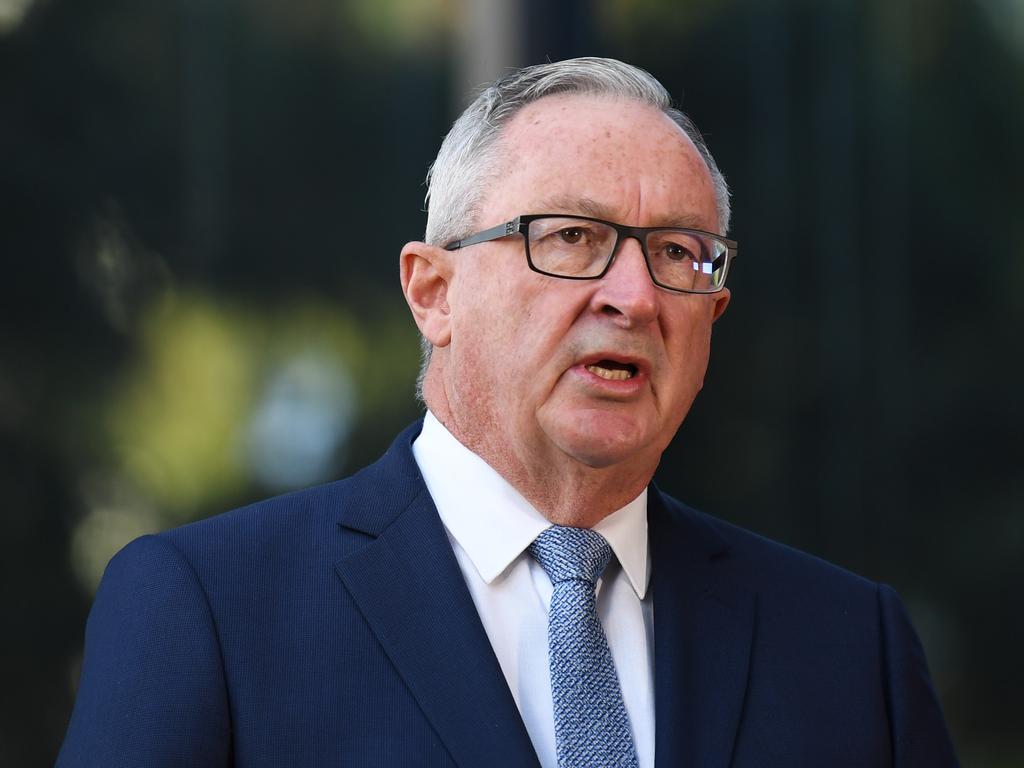
The national cabinet has proved to be an innovative response to the unprecedented challenge of COVID-19, demonstrating that our federal model of governance can be fast-moving and decisive when circumstances require.

New Zealand’s involvement is a welcome development. Given the strong success of both countries in tackling COVID-19, it recognises that the trans-Tasman partnership is one of the first of our international relationships that could be returned to normality quite soon.
On the agenda at national cabinet is the idea of establishing a “trans-Tasman bubble”, an oasis of relative normalcy in a world still paralysed and locked down by COVID-19, with the resumption of the free movement of people and normal trade and tourism flows across the Tasman Sea.
But we should look a little further afield, and consider expanding this worthy idea to a “trans-Pacific bubble”.
The states of the Pacific have so far weathered the coronavirus storm remarkably well. Vanuatu, Solomon Islands, Samoa and Tonga are virus-free. Fiji has seven active cases and has not recorded a new case in more than a fortnight. Papua New Guinea has a low number of cases but is at higher risk because of the long and porous land border it shares with Indonesia.
Across the Pacific, there have been 255 confirmed cases of COVID-19.

Most of these have been in the US territory of Guam (with 180 cases), while the rest of the region — and especially Australia’s near neighbours — remains largely virus-free.
The Pacific Islands are still vulnerable to coronavirus, especially with their limited public health infrastructure, which could be quickly overwhelmed should the virus take off.
But to date their governments have done a good job in preventing overseas arrivals and sources of infection, limiting internal travel, and raising public awareness about the disease.
Australia is reconfiguring its aid program to help those Pacific states defend themselves and respond to the threat of COVID-19. We are providing support for testing capability, public information campaigns, and access to medical supplies and expertise. And we will step up our assistance if the virus gains a foothold.

We are also pushing the Pacific’s case internationally, with the Prime Minister telling his fellow G20 leaders that the Pacific Islands “must be a focus of international support”.
But beyond the health elements we will need to help the Pacific address the economic impacts of coronavirus.
The World Bank has warned that the economic outlook for Pacific Island countries this year is subject to substantial risks due to their economies’ reliance on grants and tourism.
This is why we need an expanded trans-Tasman bubble to incorporate much of the Pacific.
By allowing normal air links and tourism to resume, we would provide a lifeline for many of these small economies.
The Pacific Islands could once more begin to access their biggest tourism markets, Australia and New Zealand.
And it would provide an opportunity for many Aussies and Kiwis to take a holiday in our region, rather than further abroad, and get to know our own neighbourhood a little better.
Pacific Island countries are also ideally placed to help meet labour market shortages in Australia that the slump in international arrivals will cause.

Net overseas migration is forecast to fall by a massive 85 per cent next year. With most students, backpackers and working-holiday makers unlikely to be making the trip to Australia any time soon, many industries that have traditionally relied on this workforce — especially agriculture, childcare and even hospitality — will need to find workers elsewhere.
The Pacific Labour Mobility scheme has already proven itself to be a win-win. It has helped meet labour shortages in Australia and provided opportunities for our Pacific neighbours to earn and remit income and develop skills.
It would also lend a further hand to our Pacific neighbours, and ensure that they continue to see Australia as their partner of first choice.
Strategic competition in the Pacific is alive and well, with China and other countries seeking to play a greater role. It is important our influence and footprint in our near neighbourhood is visible.
Australia views the Pacific as family: we look out for each other in tough times. The Pacific “step-up” has transformed our relations with these Pacific neighbours.
The next step is to ensure we come through this crisis together. A trans-Pacific bubble would help us do just that.
Dave Sharma is the federal member for Wentworth








In a first for our federation, New Zealand Prime Minister Jacinda Ardern joined the national cabinet on Tuesday for a discussion with Scott Morrison and the premiers and chief ministers.